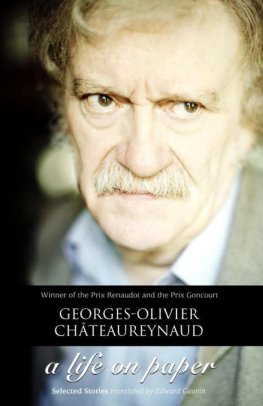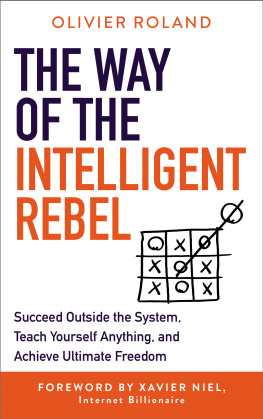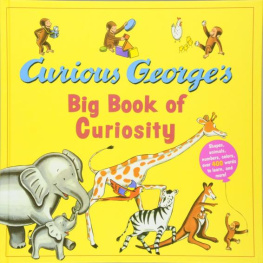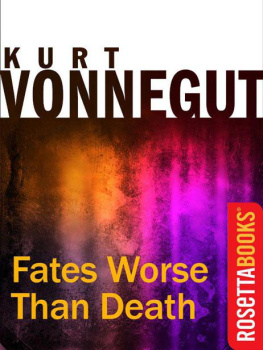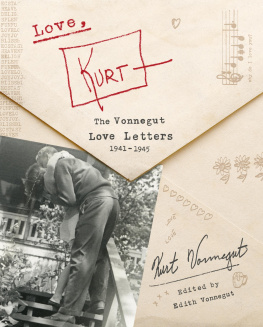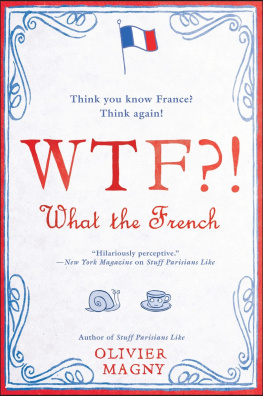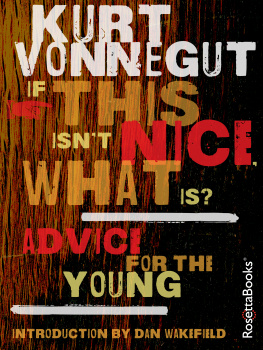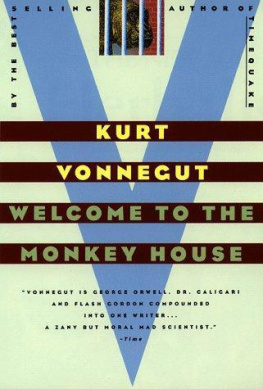Georges-Olivier Chateaureynaud - A Life on Paper: Stories
Here you can read online Georges-Olivier Chateaureynaud - A Life on Paper: Stories full text of the book (entire story) in english for free. Download pdf and epub, get meaning, cover and reviews about this ebook. year: 2010, genre: Prose. Description of the work, (preface) as well as reviews are available. Best literature library LitArk.com created for fans of good reading and offers a wide selection of genres:
Romance novel
Science fiction
Adventure
Detective
Science
History
Home and family
Prose
Art
Politics
Computer
Non-fiction
Religion
Business
Children
Humor
Choose a favorite category and find really read worthwhile books. Enjoy immersion in the world of imagination, feel the emotions of the characters or learn something new for yourself, make an fascinating discovery.
- Book:A Life on Paper: Stories
- Author:
- Genre:
- Year:2010
- Rating:5 / 5
- Favourites:Add to favourites
- Your mark:
- 100
- 1
- 2
- 3
- 4
- 5
A Life on Paper: Stories: summary, description and annotation
We offer to read an annotation, description, summary or preface (depends on what the author of the book "A Life on Paper: Stories" wrote himself). If you haven't found the necessary information about the book — write in the comments, we will try to find it.
A Life on Paper: Stories — read online for free the complete book (whole text) full work
Below is the text of the book, divided by pages. System saving the place of the last page read, allows you to conveniently read the book "A Life on Paper: Stories" online for free, without having to search again every time where you left off. Put a bookmark, and you can go to the page where you finished reading at any time.
Font size:
Interval:
Bookmark:
Georges-Olivier Chateaureynaud
A Life on Paper: Stories
For my mother
Foreword by Brian Evenson
Born in 1947, Georges-Olivier Chateaureynaud is the author of nearly two dozen books, and winner of the Prix Renaudot and the Prix Goncourt. He has been translated into a dozen languages but never, until now, into English. He has been publishing for more than thirty years: his fourth book, Mathieu Chain, appeared in 1978. In that novel, the author Mathieu Chain hears someone speaking of one of his books, a book that he is certain he never wrote despite it appearing in his bibliography. This small mystery and Chain's attempt to unravel it end up leading the character out of the known world and in entirely unexpected and compelling directions-not dissimilar to the way the simple act of shaving turns the life of the main character upside down in Emmanuel Carrere's novel The Mustache.
One of the great achievements of such a novel is that it feels at once oddly real and shot through with the fantastic: the twisty little passages of the everyday crosscut the billows and swirls of the imaginary. The real seems always to be threatening to unravel. Such complex interaction doubly characterizes Chateaureynaud's stories, which offer not only a subtle tension between the real and the imaginary, but also a tension between the calm and the severely odd. As Michele Gazier has suggested, "These stories are haunted by the twin graces of simplicity and mystery beneath their almost too seemly exteriors, they burst with madness, strangeness, a sensuality that their prose veneer conceals only the better to reveal."
A compilation chosen from several collections of Chateaureynaud's fiction published over a period of thirty years, A Life on Paper provides an excellent and representative sampling of Chateaureynaud's work. Some stories shade far into the fantastic; others seem realistic except for one brief moment or lingering doubt. But in all of the stories gathered here, we have the impression of a focused writer pursuing a personal and highly individual oneiric project. Like Kafka, Chateaureynaud has little interest in explaining away the fantastic or in dulling its claws: the dreamy strangenesses to be found in his stories simply exist and must be taken at face value. At one moment a frustrated poet might suddenly stumble into an impossible museum dedicated to him and documenting his life in painful detail. In another, a taxi driver might reach a street that connects the real world to a void. In other stories, unexplained blight mars both buildings and men, a man suddenly develops ridiculously small wings, an obsessive father has more than 93,000 photographs taken of his daughter, and a dead man has the bad manners to continue interacting with the living. A man might strip naked and then set fire to his house, his clothing, and his birds, and then wander off to nowhere. But, on the other hand, Chateaureynaud might catch you off-guard by offering a seemingly non-fantastical sketch of the life of a schoolboy. This is a world with severed heads still living in sacks, automated firing squads, time travel, tattoos that seem to have lives of their own, and a stuffed woman who occupies a musical instrument case. There are mythical creatures, like undines and sirens. There are dark, perhaps demonic pacts that seem to have been struck over (believe it or not) antique furniture. Through it all we find writers, discussions of writing and art, that allow us to read these stories metafictionally, and glimpse the phantom of the writer as he composes them. In addition, many of the elements of the gothic surface, but Chateaureynaud's tone that is anything but gothic. At times there are moments that strike us as familiar-the tale of a cursed knight, a city that might be out of Calvino, flickers of Vonnegut or even Barthelme, an island that seems half-built from The Tempest and half from Alfredo Bioy-Casares's The Invention of Morel-but Chateaureynaud always inflects these moments just slightly, keeping the reader both interested and off-balance.
Chateaureynaud's most sinuous and elegant stories are reminiscent of Isak Dinesen's and their pleasure comes at least as much from the care with which the stories are told and their tone as from the content of the stories themselves. "Each of these texts," suggests Isabelle Roche, "is an embodiment of the short story in its purest form." The longer stories in particular are told with an authority and composure that do not resort to cheap tricks but offer instead moments of genuine subtlety and surprise.
Edward Gauvin's precise and fluid translation does Chateaureynaud great justice. Both in the original French and in Gauvin's English rendering, the prose is scrupulous and deliberately out of step with the post-Beckettian trends of much of contemporary French fiction. But while these stories feel out of time, they never feel old or unoriginal. Quite the opposite: as each story develops one quickly finds oneself engrossed in a fantastical narrative that only Chateaureynaud could write. These are sharp, carefully chiseled stories that initially seem deceptively simple but soon reveal hidden facets and satisfying complexities.
Taking all that into account it is surprising that it took thirty years to bring Chateaureynaud into English. He is an original, and though his vision is highly personal, it is also highly contagious. Before you're done reading, you'll begin to feel highly attuned to the way the real seeps into the surreal, the way the everyday, given just the right push, can collapse into the extraordinary.
Brian Evenson Providence, March 2010
A Citizen Speaks
 s for the blight, we call it rust for its color. In reality, whether mold or oxide, its true nature eludes us. Does it not assail stone.and slag alike? Both zinc and bronze? Even woodwork corrodes here. The leprosy spares only living things: a tree will spend ten years unscathed, slowly rising over a path, but let a branch be cut, treated, painted, and varnished-that branch will be disease-ridden in a few months. So unerring is it that old men's complexions often imitate its taint. That was how my father died: reddish, as though life had singed him. In his final days, I sometimes pressed on, in my walks, all the way to the park's far end, where we'd never before ventured. An ancient statue with a finger to its lips-a faun or genius loci-imposed silence on the crabgrass sprouting there. And this corner of nature seemed to obey. By some singular disposition of the place, the wind that blew all over the hill didn't blow there, and I never saw a bird land in that spot. Only my steps, crushing the grass beneath them, disturbed the silence. I drew closer to the faun. Perhaps his nudity explained why we'd been forbidden to play there. On his cheeks, chest, and thighs blossomed brown spatters of blight; hardly the least curious feature of this kind of decay is that it begins from within, making its way from the heart of a thing to its surface. One day, standing before the faun-my father was then at death's door, and I'd come one last time seeking the seclusion I was sure to find there-I had the idiotic but irrepressible urge to stab him with a long stick lying at his feet. My makeshift lance struck him right in the middle of one of the biggest russet spatters, roughly covering his heart had he been a creature of flesh. The rotten marble opened to the pointed stick as would a human breast, and I let go in fright. The lance quivered for a moment at the heart of the statue before falling to the ground. From the wound, with a stirring as of dust, red shavings drained away, a coarse powder of mingled rust and marble that I momentarily mistook for blood. I could not have been more terrified had the faun brought his hands to his chest. Yet still he stared at me with those same mocking eyes, a finger on his lips, as though asking me not to tell anyone about the marvel. My heart beating, I examined his wound more closely and saw that there was nothing left to him but a marble husk, the inside of the statue no longer solid but filled with that strange aggregate so like sand in an arena where blood from carnage had long since dried in the sun. Another shudder passed through me at the thought that my father was the same way, and I imagined his insides, his fragile flesh and organs scraping beneath his skin's reddish translucency. I went home. I was informed of his sudden death. But I was speaking of the city; if only rarely is it so severe, the damage caused by the rust nonetheless leaves unusual and vaguely catastrophic traces on everything within our walls. We who live here can on first glance pick out from among a hundred pictures of unnamed streets the only one from our town. This is because the secret germinations of our facades and rooftops always show through in some sign only we detect. Well before the spatters I've mentioned blossom in broad daylight, wood and stone tarnish, darken imperceptibly. It's as though the sun suddenly loathed bathing this sickly matter in its light. Although many buildings seem new thanks to coats of paint, no doubt remains that the entire city is wasted by this disease, as though by an acid it secretes itself, which will one distant day restore this spot to its initial desolation.
s for the blight, we call it rust for its color. In reality, whether mold or oxide, its true nature eludes us. Does it not assail stone.and slag alike? Both zinc and bronze? Even woodwork corrodes here. The leprosy spares only living things: a tree will spend ten years unscathed, slowly rising over a path, but let a branch be cut, treated, painted, and varnished-that branch will be disease-ridden in a few months. So unerring is it that old men's complexions often imitate its taint. That was how my father died: reddish, as though life had singed him. In his final days, I sometimes pressed on, in my walks, all the way to the park's far end, where we'd never before ventured. An ancient statue with a finger to its lips-a faun or genius loci-imposed silence on the crabgrass sprouting there. And this corner of nature seemed to obey. By some singular disposition of the place, the wind that blew all over the hill didn't blow there, and I never saw a bird land in that spot. Only my steps, crushing the grass beneath them, disturbed the silence. I drew closer to the faun. Perhaps his nudity explained why we'd been forbidden to play there. On his cheeks, chest, and thighs blossomed brown spatters of blight; hardly the least curious feature of this kind of decay is that it begins from within, making its way from the heart of a thing to its surface. One day, standing before the faun-my father was then at death's door, and I'd come one last time seeking the seclusion I was sure to find there-I had the idiotic but irrepressible urge to stab him with a long stick lying at his feet. My makeshift lance struck him right in the middle of one of the biggest russet spatters, roughly covering his heart had he been a creature of flesh. The rotten marble opened to the pointed stick as would a human breast, and I let go in fright. The lance quivered for a moment at the heart of the statue before falling to the ground. From the wound, with a stirring as of dust, red shavings drained away, a coarse powder of mingled rust and marble that I momentarily mistook for blood. I could not have been more terrified had the faun brought his hands to his chest. Yet still he stared at me with those same mocking eyes, a finger on his lips, as though asking me not to tell anyone about the marvel. My heart beating, I examined his wound more closely and saw that there was nothing left to him but a marble husk, the inside of the statue no longer solid but filled with that strange aggregate so like sand in an arena where blood from carnage had long since dried in the sun. Another shudder passed through me at the thought that my father was the same way, and I imagined his insides, his fragile flesh and organs scraping beneath his skin's reddish translucency. I went home. I was informed of his sudden death. But I was speaking of the city; if only rarely is it so severe, the damage caused by the rust nonetheless leaves unusual and vaguely catastrophic traces on everything within our walls. We who live here can on first glance pick out from among a hundred pictures of unnamed streets the only one from our town. This is because the secret germinations of our facades and rooftops always show through in some sign only we detect. Well before the spatters I've mentioned blossom in broad daylight, wood and stone tarnish, darken imperceptibly. It's as though the sun suddenly loathed bathing this sickly matter in its light. Although many buildings seem new thanks to coats of paint, no doubt remains that the entire city is wasted by this disease, as though by an acid it secretes itself, which will one distant day restore this spot to its initial desolation.
Font size:
Interval:
Bookmark:
Similar books «A Life on Paper: Stories»
Look at similar books to A Life on Paper: Stories. We have selected literature similar in name and meaning in the hope of providing readers with more options to find new, interesting, not yet read works.
Discussion, reviews of the book A Life on Paper: Stories and just readers' own opinions. Leave your comments, write what you think about the work, its meaning or the main characters. Specify what exactly you liked and what you didn't like, and why you think so.

